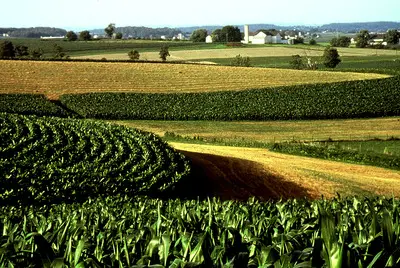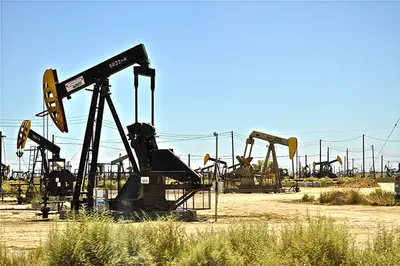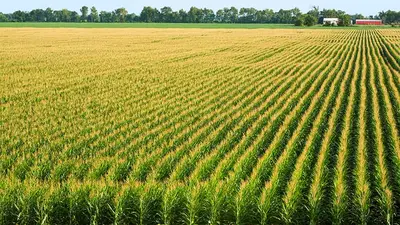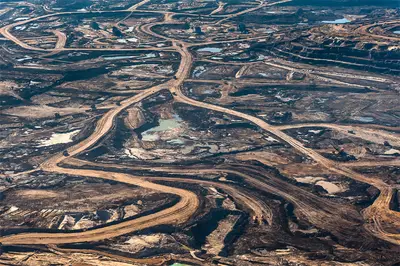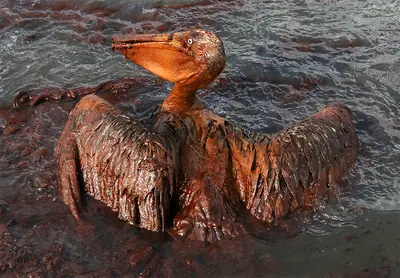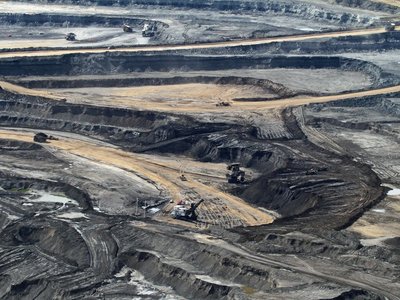 |
Breaking the ring of Big Oil sponsored deception
By Marc J. Rauch
Exec. Vice President/Co-Publisher
THE AUTO CHANNEL
Originally published April 17, 2017
 Marc Rauch |
Two weeks ago I wrote and published a story on TheAutoChannel.com called UNCOVERING THE GAS ROOTS OF CONTEMPORARY ETHANOL OPPOSITION. That story dealt with HOW the petroleum oil industry has worked to distort the truth about ethanol. This story unmasks a specific individual WHO has a history of working to hide the truth from the public about significant health and safety issues, while using his professional and academic credentials as a front for his phony analysis of ethanol.
I just finished reading a new anti-ethanol commentary "How The Ethanol Mandate Is Killing The American Prairie," written by William F. Shughart II, a professor at Utah State University and a Senior Fellow at a think tank called Independent Institute. Professor Shughart is a former economist at the Federal Trade Commission and he has taught at George Mason University, Clemson University, University of Mississippi, and the University of Arizona.
The article was brought to my attention by Mark Perry, an economist and professor of economics and finance in the School of Management at University of Michigan-Flint. Mr. Perry is also a visiting scholar at the American Enterprise Institute and he also previously taught at George Mason University. Two years ago Mr. Perry wrote and published an anti-ethanol editorial. At that time I challenged his editorial as containing an incorrect analysis of the results of producing and using ethanol. Although he never replied to my rebuttal, three days ago he sent me an email with a link to Bill Shughart's editorial. I am unsure as to why Mr. Perry brought this article to my attention - it might have been because he believed it would show me up, or because he was hoping that I would expose Mr. Shughart.
In any event, I began by responding directly to Mr. Shughart by email as if the claims made in the April 13th editorial were in earnest. I did this because I believe there is always great value in presenting correct information about the subject. I ended my letter with information that I believe should change everything about how America views the academics and spokespeople who come out in opposition to ethanol.
I did receive a reply from Mr. Shughart a few hours after sending the email yesterday. I have included his reply, and my response to that reply. You will see those exchanges below. If additional replies and responses come in after the initial publication of this page I will update this page accordingly.
An Open Letter to William F. Shughart II, on How The Ethanol Mandate Is Killing The American Prairie
April 17, 2017
Dear Bill:
I'm writing to you in regard to your commentary "How The Ethanol Mandate Is Killing The American Prairie" that was published in Investor's Business Daily on April 13, 2017.
Since I wasn't familiar with your name (and I'm sure you don't know me from Adam), the first thing I did after reading your commentary was to do a search and see what else you've written about ethanol. The only other item I found was a story from March 2013, which was very similar to your new piece...almost identical in its wording and exaggerated concern over America's grasslands. In the older story you use the term "destruction of nation's prairies," in the new story you use "killing the American prairie."
Concern for the environment is an admirable mission. Concern for the animals who depend upon the environment is highly commendable. Frankly, I feel exactly the same about the environment and animals. This is why I can't understand how someone (you) can be concerned about the disastrous effects when it's related to alternative fuels, but not concerned when the damage is caused by the oil industry in its efforts to literally shove more poisonous gasoline down our throats. I'm sure that you must have seen photographs and videos of all the dead mammals, birds, and fish that have been killed by oil spills and explosions.
 Dead U.S. servicemen in Afghanistan |
I'm also sure, Bill, that you must be aware of all the deaths caused by the oil industry to that other abundant species of mammals known as humans. Oil industry destruction of human beings occurs in several ways, most notably via respiratory diseases, cancers, and war.
Every few months I update a story that I originally published in September 2014. The upshot of this story is that no American servicemen have been killed defending the ethanol industry. By my count, it is now 15,763 consecutive days since the October 1973 oil crisis in which no American servicemen have been killed because of ethanol. Do you know how many days have gone by since an American military man has been killed defending oil? How about, oh, two days!
If you're such a strong conservationist and humanitarian, why haven't you written any editorials about the death and destruction caused by our national dependence on petroleum oil?
It's interesting that you cite a report by the Organic Consumers Association as your source for the amount of grassland at risk by corn crops. Have you researched who OCA is? You are a "research fellow," aren't you, fellow? Do you know that one of their biggest claims to fame was their protests against Starbucks Coffee? Don't get me wrong, if you've ever tasted Starbuck's regular coffee, then you know there's lots to complain about, but their protests concerning the use of cow's milk in Starbuck's coffee is a bit excessive, don't you think? I understand that their protest was against the use of hormones to make the cows produce more milk, but how do they square the potential health risk to humans associated with hormones against the proven health risks to humans that are associated with the use of gasoline and diesel fuel? I find their concern over America's grasslands and wildlife to be very disingenuous.
Well, let me move past Starbuck's and their lousy regular coffee. Your editorial bemoans the loss of so much of the beautiful natural American grassland. You wrote: "When prairie is plowed under to grow corn it becomes a barren landscape."
Actually, the bleak word picture you've created is quite wrong. When prairie is plowed under to grow corn this is the true picture:
Now, let me juxtapose the picture of what happens when prairie is plowed under to grow corn with this picture of what happens when America's natural landscape is used to lift petroleum oil out of the ground:
Let's see that comparison again.
Without doubt, corn fields are not barren landscapes, but oil fields most definitely are. How much wildlife do you think can be supported in these oil killing fields, Bill?
Bill, I'd also like to point out to you and the Organic Consumers Association that there are a wide number of reasons why prairie is being lost. In Indiana, for example, they lose about 200,000 acres of farmland per year to urban growth. If you're not a fan of shopping centers and new housing communities I guess you could call it a "barren landscape," but the only way you could blame that on corn is to complain about the popcorn they sell at the new movie theaters. However, for they or you, or anyone serious about this subject I would recommend you read "Vanishing Open Spaces" by Leon Kolankiewicz, Roy Beck and Anne Manetas. Their study provides a rather excellent break down of the loss of open space and the problem of urban sprawl and population growth, and they don't seem to have an oil industry sponsored agenda to blame it on corn. In fact, in the entire study, which covers about 100 pages of text, charts, and tables, they only mention the word "corn" one time.
The title of your article refers to an "ethanol mandate," and you imply that there is also a mandate to make the ethanol from corn. However, there is no ethanol mandate; there is a renewable fuel mandate. It so happens that ethanol is the best and most affordable renewable fuel to use, therefore ethanol is used. There is also no mandate that corn be used to make the ethanol. It just so happens that in America the best crop to use to make ethanol is currently corn.
For many decades, the oil industry has argued that there isn't enough land in the United States to grow a sufficient amount of crops needed for ethanol to become the primary engine fuel, or for it to become even the primary anti-knock gasoline additive for America. William Kovarik documents this extensively in his 1993 dissertation, "THE ETHYL CONTROVERSY" which details the times and events surrounding the invention of leaded gasoline (gasoline with tetraethyl lead added to boost the octane and eliminate engine knock), and the oil industry conspiracy to keep ethanol out of the picture.
This land underestimate argument continued to be used against ethanol right up to, and through, the Pimentel-Patzek 2005 study and Robert Bryce's 2008 book "Gusher Of Lies." The land underestimate established a land-wall position similar to the blend-wall position that has been evoked to try and keep ethanol production down. The presumption behind the blend-wall is this: Since internal combustion vehicles can only safely use E10 (10% ethanol/90% gasoline), and that national fuel usage has dropped to such low levels because of modern engine MPG efficiency, there's no reason for ethanol production levels to be increased. This spurious proposition resulted in investments in new ethanol plants being withdrawn, along with the premature demise of several operating ethanol plants.
However, the blend-wall was a fictional blend-wall. As major studies showed, the vast majority of passenger vehicles on the road in America could safely use E15 and E20. This effectively increased the opportunity for 50% to 100% more ethanol to be produced. In addition, several independent experiments - including the personal long term experiments I conducted with high-level ethanol-gasoline blends in a variety of non-flex fuel vehicles - proved that ethanol-gasoline blends ranging from E25 to E50 and higher could be safely and routinely used by the same vast majority of passenger vehicles on the road. These experiments effectively increased the opportunity for 200%, 300%, 400% and more ethanol to be produced.
In the same manner, David Blume (author of "ALCOHOL CAN BE A GAS") and others have correctly identified the true amount of American land that could be used as about 200% more than the acreage previously thought capable of growing energy crops. Moreover, as David Blume and others rightfully point out, there are a number of other crops that can be easily and efficiently grown in the U.S. that permit ethanol yields that are 2X, 4X, 6X, 8X greater than the corn per acre yield. In fact, with kelp it's possible to attain up to 100 times per acre more ethanol than corn - with no irrigation or fertilizer needed.
All that is needed for this to come to pass is to drop such anti-ethanol pretenses as yours, Bill, and to encourage significant financial investment in next generation ethanol production.
Bill, you also write: "Ethanol per se is not the problem, however; Washington's lack of common sense is the problem."
I'd say that if there is a "lack of common sense problem," that there's also a "lack of truth problem," and that they exist within the oil industry and the lackeys who write editorials on their behalf.
On top of this, you and your oil-sponsored mouthpiece cohorts also obviously lack historical perspective on the entire issue. You exhibit no knowledge of how and why gasoline and diesel fuel became our primary engine fuels. Do you let your students get away without having any foundation when they express their opinions in written papers or oral exams? You write about the possibility of extracting oil from the tar sands, but the photographs show how high the environmental cost would be. When you raise the specter of environmental disasters, you are automatically invoking the petroleum oil industry. Additionally, the actual cost at the pump for fuels made from tar sand oil would be far higher than ethanol.
You write about subsidies given to the ethanol industry, but you fail to mention the subsidies that have been given to the oil industry for more than 100 years, and are many times greater per year than any ethanol subsidies.
Your bio identifies you as the Research Director of an Oakland, California based think tank, the Independent Institute. How about doing some real research into the issue? How about actually doing some independent thinking about the issue before regurgitating the lies told to you by the oil industry?
This brings me, Bill, to your history of working as a paid stooge for the Tobacco Industry, in a role not unlike what you are performing for the oil industry. I'm referring to your being a cash-for-comments-academic as described on the ScienceCorruption.com website, on the SourceWatch.org website and on the SourceWatch page that describes the Cash-For-Comments-Economists-Network.
How much have you been paid by the oil industry? How far are you willing to go in lying for the oil industry? How little respect do you have for the academic institutions you've served and the degrees you hold that you would whore yourself out to the tobacco industry and the petroleum oil industry for a few measly dollars?
Your participation in ethanol bashing, along with the awareness of your participation in the scammy tobacco-promotion racket, verifies what we've long believed about the academics and media spokespeople who come out to support the oil industry: You don't have a clue as to the subject matter and you are simply selling access to your professional and academic credentials without any concern for the truth. You should be removed from your post at Utah State University and barred from ever teaching at another school.
Reply #1 from William Shughart:
Dear Mr. Rauch,
I have only two replies to your column:
First, most of the information in my recent column in Investor's Business Daily was taken from the peer-reviewed economics literature as well as U.S. government data sources. As far as I can tell, yours is not. Second, I reject categorically your ad hominem attack on my credibility and your implication that my analyses of the ethanol mandate are influenced by monies paid to me by special-interest groups. I have been a professional economist for nearly 40 years; my opinions never have been "bought!".
With best wishes,
William F. Shughart II
My response to Reply #1
Hi Bill -
I greatly appreciate your reply. I'll be adding it, my response, and any additional comments you'll make to the story.
All of my writings regarding ethanol and the automobile industry are peer-reviewed. I'd be happy to provide a list of those peers who regularly review my work. Like you, I also use U.S. government sources for data, whenever it's relevant and available. If you have a particular question as to where a specific piece of information I used originates, please ask. In the instance of my referring to subsidies given to the oil industry, I am providing an abbreviated list below.
In regard to your use of peer-reviewed literature, I'm wondering if you can help identify which literature you are referring to that helped you to form your opinions, and who the peers were who reviewed it. I saw no list of any peer-reviewed literature attached to your Investor's Business Daily editorial. The only thing I found by doing an Internet search of your name was the anti-ethanol editorial you wrote in March 2013 for McClatchy Newspapers, which was virtually identical to the new IBD editorial (and it also lacked any reference list). I particularly ask about the peer-reviewed literature in light of the findings published on the SourceWatch.org website that identify you as a "major figure in the Cash For Comments Economist Network..." and that you "...played a you-scratch-my-back/peer-review game where each would generate favourable 'peer reviews' of each other's work." I'm sure you'll agree that this information is in sharp contradiction to your comment that your "opinions never have been bought."
Regards.
Abbreviated list of links related to oil/gasoline subsidies
• http://www.nytimes.com/2010/07/04/business/04bptax.html• http://www.cato.org/pubs/pas/pa390.pdf
• https://www.eli.org/research-report/estimating-us-government-subsidies-energy-sources-2002-2008
• http://www.imf.org/external/pubs/ft/spn/2010/spn1005.pdf
• http://en.wikipedia.org/wiki/Energy_subsidies
• https://blumenauer.house.gov/energy-issues#fossil
• http://merkley.senate.gov/newsroom/press/release/?id=F68FED0D-08C0-4DC4-9035-211E28DD9B7E
• http://blog.ucsusa.org/jim-kliesch/oil-industry-subsidies-are-anything-but-rosy?_ga=1.161769531.686943746.1492723673
• http://en.wikipedia.org/wiki/Petroleum_industry - no subsidy info, just history
• http://sdg.iisd.org/news/investors-call-for-end-to-fossil-fuel-subsidies-wind-power-capacity-rises/
• https://www.dailykos.com/stories/2011/3/1/951571/-
• https://www.forbes.com/sites/energysource/2012/04/25/the-surprising-reason-that-oil-subsidies-persist-even-liberals-love-them/#102e12632792
• https://thinkprogress.org/big-oils-banner-year-higher-prices-record-profits-less-oil-d337b2dcf58c
• http://priceofoil.org/2012/02/07/the-big-the-bad-and-the-subsidized/
• http://www.foreffectivegov.org/sites/default/files/budget/Revenue/OilandGas.pdf
• http://www.huffingtonpost.com/2011/02/01/obama-moves-to-cut-oil-subsidies_n_816787.html
• http://themoderatevoice.com/78678/unemployment-benefits-and-oil-subsidies/
• http://www.americanprogress.org/issues/2010/05/oil_company_subsidies.html
• http://energydeals.wordpress.com/2011/02/02/obama%E2%80%99s-bid-to-end-oil-subsidies-revives-debate/
• http://ilsr.org/wp-content/uploads/2012/05/Oil-Slickers.pdf
• https://www.yahoo.com/news/decades-federal-dollars-helped-fuel-141648115.html
• http://www.sourcewatch.org/index.php/Estimating_U.S._Government_Subsidies_to_Energy_Sources_2002-2008
• https://www.eli.org/research-report/estimating-us-government-subsidies-energy-sources-2002-2008
SEE ALSO: Unmasking The Gas Roots of Contemporary Ethanol Opposition - Round 2



